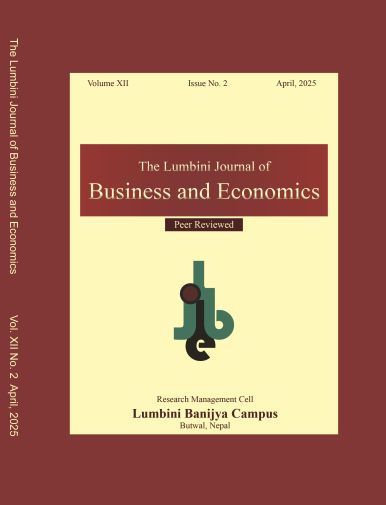Environment, Social and Governance Integration with Investment Decision in Asian Region: A Systematic Literature Review
DOI:
https://doi.org/10.3126/ljbe.v12i2.77406Keywords:
ESG integration, investing decision, sustainability, risk managementAbstract
Purpose: This systematic literature review aims to explore the integration of Environmental, Social, and Governance (ESG) factors into investment decision-making in the Asia-Pacific region. The specific objective of the study is to analyze the historical development, adoption drivers, challenges, approaches, and impacts of ESG integration on risk management and investment performance in Asia.
Methods: Utilizing the PICo approach guided by PRISMA criteria, 20 relevant publications were systematically reviewed from databases such as JSTOR and Google Scholar to identify trends, frameworks, and regional differences in ESG adoption.
Results: The findings indicate that ESG integration in Asia has transitioned from ethical and socially responsible investing to a more sophisticated framework that balances financial performance with environmental sustainability and social equity. Governance factors, particularly board independence and transparency, were found to have the most significant influence on investment decisions. Regional dynamics, such as the impact of climate change, social inequality, and population density, play a crucial role in shaping ESG priorities across different Asian countries.
Conclusion: The study concludes that ESG integration offers long-term benefits, including enhanced risk management, better financial performance, and more sustainable business practices. However, challenges such as regional disparities, lack of standardization, and information asymmetry persist.




